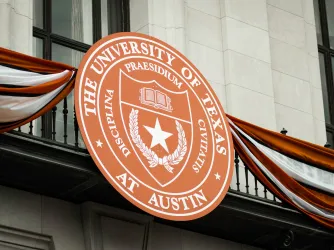Table of Contents
University of Tennessee, Knoxville’s cagey responses about ‘diversity action plans’ prompt FIRE to file public records request

Ken Wolter / Shutterstock.com
In September, FIRE wrote the University of Tennessee, Knoxville out of concern that its “diversity action plans” contain various proposals that threaten faculty First Amendment and academic freedom rights. The university responded that these proposals are not currently in effect, and that it is working off of new plans which contain almost none of the troubling elements of the old ones. But whether the university implemented any of the unconstitutional objectives in the original plans before developing new ones is unclear. After sending multiple follow-up emails, FIRE has yet to receive a straight answer on this issue.
Rather than wait on UT Knoxville any longer, we’ve taken matters into our own hands. Today, we submitted a public records request to the university to get some answers.
In the summer of 2020, the university announced campus units were developing diversity action plans as part of “a sustained push to advance diversity, equity, and inclusion.” The National Association of Scholars recently issued a report criticizing the plans, which it obtained through a public records request for “each ‘diversity action plan’ that was submitted and approved.”
Rather than wait on UT Knoxville any longer, we’ve taken matters into our own hands.
As FIRE previously explained, while some parts of the plans — such as efforts to retain and attract more faculty and staff from historically underrepresented groups — are not objectionable from a free speech or academic freedom perspective, many proposals threaten faculty members’ expressive rights by imposing ideological constraints on their academic activities. Among the proposals to which FIRE objects are: mandatory syllabi statements affirming diversity, equity, and inclusion; requirements that current or prospective faculty submit DEI statements; DEI-based course evaluations; and bias reporting systems which jeopardize the freedom of speech of faculty and students.
In response to our letter, UT Knoxville said the diversity action plans we cited are no longer in place and pointed us to new plans, which do not raise the same concerns about free speech or academic freedom. That is welcome news, but we want to make sure none of the rights-restrictive proposals in the old plans — which apparently had been in effect for some time after receiving university approval — have been implemented. So, in a follow-up email, we asked the university, “In the interest of further clarification, does this mean that none of the original Diversity Action Plans’ objectives cited in FIRE’s previous letter have—or will be—adopted into policy or otherwise implemented?”
UT Knoxville’s chancellor replied, “I have reviewed your questions and confirm that our colleges and campus administrative units are working from the new plans.”
That doesn’t answer our question, so, again, we asked for clarification.
“[I]t remains unclear whether any of the original plans’ problematic elements cited in FIRE’s letter were implemented before colleges began working from the new plans,” we told UT Knoxville.
This time, the university’s chief of staff told us “the University has no diversity initiatives that violate the First Amendment rights and academic freedom of prospective and current faculty. While we appreciate FIRE’s interest in this area, we are not aware of expressions of concern about these issues from any prospective or current faculty member.”
FIRE filed a public records request with UT Knoxville to find out whether it implemented any of the original diversity action plan components to which we objected.
That’s nice, but we didn’t ask for the university’s opinion on whether any of its policies violate faculty rights. And the absence of complaints from faculty doesn’t mean the policies are constitutional or comport with academic freedom, or that no faculty members have issues with them. Unconstitutional policies in and of themselves produce a chilling effect: Their mere existence may give faculty reason to believe speaking up will negatively affect their careers or reputations. That’s why it’s so important to nip them in the bud before they can chill more speech, regardless of whether anyone has voiced a complaint.
UT Knoxville commendably earns FIRE’s highest, green light rating, which means its written policies on student expression do not seriously imperil free speech. However, the university should ensure its policies respect faculty free speech too.
At this point, FIRE’s informal email correspondence will likely not elicit an answer to our straightforward question. So today, rather than continue to pull teeth via email, FIRE filed a public records request with UT Knoxville to find out whether it implemented any of the original diversity action plan components to which we objected in our September letter. We hope the answer is no, but the university’s reluctance to give us this information does not make us optimistic.
We’ll update readers when we know more.
FIRE defends the rights of students and faculty members — no matter their views — at public and private universities and colleges in the United States. If you are a student or a faculty member facing investigation or punishment for your speech, submit your case to FIRE today. If you’re faculty member at a public college or university, call the Faculty Legal Defense Fund 24-hour hotline at 254-500-FLDF (3533).
Recent Articles
FIRE’s award-winning Newsdesk covers the free speech news you need to stay informed.

FIRE and ACLU of TX: University of Texas must drop unconstitutional drag ban

FAQ: Responding to common questions about the fight between Harvard and the Trump administration

George Mason University calls cops on student for article criticizing Trump


